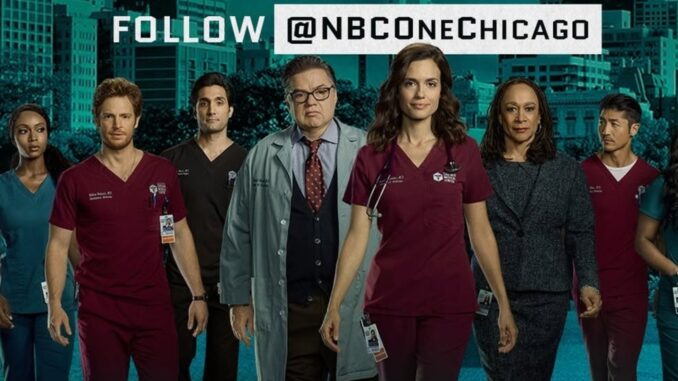
The flickering lights of Chicago Med’s emergency department, usually a beacon of life and death, have, in the latest episode, cast a long, unsettling shadow over the most personal of revelations: Hannah Asher’s pregnancy. But while the narrative seems to nudge us towards Dean Archer as the presumptive father, a nagging intuition, a collection of subtle glances, and the weight of unspoken words have me convinced otherwise. Dean isn’t the father, and the show, in its masterful way, is quietly setting the stage for a narrative bombshell.
My gut feeling isn’t born of a single, overt clue, but rather a tapestry woven from the frayed threads of Hannah and Dean’s tumultuous relationship, Hannah’s guarded demeanor, and Dean’s own strangely muted response to the news. Their bond, forged in the fires of Hannah’s addiction and Dean’s gruff, often paternalistic care, has always felt more like a rescue mission than a burgeoning romance. Even at its most tender, their connection carried an undercurrent of codependency, a fragile alliance against past demons. A baby, a symbol of new beginnings and unwavering commitment, feels too pure, too stable for the foundation they’ve precariously built.
Consider Hannah. Her journey has been one of hard-won sobriety, professional growth, and a fierce, almost desperate, desire for control over her own life. The Hannah we’ve come to know is acutely aware of triggers, of vulnerabilities. In the latest episode, when the topic of the baby arises, her reaction isn’t one of pure, unbridled joy, or even the overwhelmed but hopeful trepidation common to first-time mothers. Instead, there’s a flicker of something else in her eyes – a guardedness, a weariness that seems deeper than typical pregnancy fatigue. Her smiles, when she offers them, feel a shade too tight, her answers sometimes a beat too slow, as if she’s carefully constructing a narrative rather than simply sharing her truth. She avoids Dean’s more possessive gestures, not with anger, but with a subtle deflection, like a bird fluttering just out of reach. This isn’t the body language of a woman secure in the shared creation of a new life with the man standing beside her. It’s the posture of someone holding a weighty secret, protecting it, perhaps even from herself.
And then there’s Dean. Dean Archer, a man whose emotional landscape is usually as transparent as glass, albeit a slightly grimy one, is oddly opaque when it comes to Hannah’s pregnancy. His usual stoicism, usually a fortress, seems to crack just slightly, revealing not parental pride, but perhaps a gnawing uncertainty, or even a quiet resignation. He speaks of “their future,” but the words seem to hang in the air, lacking the conviction we’d expect from a man anticipating fatherhood. There’s a forced optimism to his pronouncements, a desire to believe that this baby ties them together irrevocably, yet it feels less like genuine conviction and more like a desperate wish. He’s always been protective of Hannah, almost paternal, but this new protectiveness, bordering on possessiveness, has a frantic edge to it, as if he’s trying to stake a claim on something he’s not entirely sure is his.
The brilliant subtlety of “Chicago Med” often lies in these unspoken moments, these fractional hesitations that speak volumes louder than any dialogue. The latest episode, a crucible of glances and charged silences, has cemented a growing suspicion: the baby Hannah carries might not be Dean Archer’s. Perhaps it was a brief, vulnerable encounter during a low moment in her recovery, a miscalculation in her desire for connection, or a secret she’s been guarding, not out of malice, but out of fear of shattering the fragile stability she’s built with Dean. Whatever the truth, the show is meticulously laying the groundwork for a reveal that will undoubtedly send ripples through Gaffney Chicago Medical Center, testing the limits of loyalty, love, and the complex human heart. And when that truth inevitably surfaces, it will redefine not only Hannah’s future, but Dean’s place in her life, forcing us all to confront the messy, unpredictable realities that even the most dedicated doctors cannot always heal.
